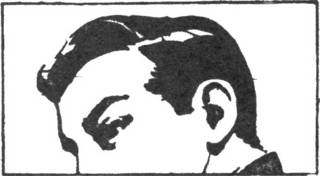Anyone who's observed or participated in a political discussion in recent times is probably familiar with the word libtard, a derogatory term for anyone with liberal or left-wing political views. It's a portmanteau word, formed by grafting 'liberal' and 'retard' together, which should tell you that this is a fairly offensive slur. I can't find anything online that establishes definitively who coined the word, or where it was used first. On Quora, there's some speculation that it was created by Rush Limbaugh or one of his speechwriters; one commenter notes that the blogger Madison Slade aka Moxie claimed to have invented it. It's dated early 21st century in most places - a quick Google search uncovered an example from 2004, though of course, it's always possible that the word was in use informally in the nineties, as some people have claimed on Yahoo Answers.
Libtard is such a Twitter word, I thought of checking when it was first used there. To my surprise, it didn't come into circulation on Twitter till 2008, when the twitter handle @fakejohnmccain began using it as a hashtag along with other right-wing Twitterers (Is that a word? I refuse to use 'Tweeple'). Unsurprisingly, most of the Indian variants of the word appear to have been coined and flung around quite liberally in the heated run-up to the 2014 general elections, which brought out armies of trolls who supported the Gujarati politician Narendra Modi's rise to the national political scene. Here's a brief genealogy of libtard's Indian relatives, along with the earliest tweet I could find which used the neologism in question. Statutory warning: all these words are offensive and absolutely not to be used in polite conversation.
Namtard, Namotard
A supporter of Narendra Modi. Portmanteau word using the politician's Hindi initials (Na. Mo. न. मो.) Modi's critics tend to pun on his initials to deride his followers as sheep, since they form the Sanskrit word namo नमो, which means 'I bow'.
A supporter of the Aam Aadmi Party (AAP) which opposes Narendra Modi's Bhartiya Janata Party (BJP).
A supporter of Narendra Modi. From the Hindi slang word 'feku', one who spins lies or makes tall claims - the root word is phenkna, to throw out. A frequent accusation against Narendra Modi in the 2014 elections was that he made promises he couldn't possibly keep.
A supporter of Rahul Gandhi, a Congress (I) leader who BJP supporters call Pappu - a dismissive nickname for a young boy.
From bhakt, a devotee. A derogatory word for an unquestioning follower of right-wing ideologies, or a fan of Narendra Modi. A religious bent is implied.
Libtard is such a Twitter word, I thought of checking when it was first used there. To my surprise, it didn't come into circulation on Twitter till 2008, when the twitter handle @fakejohnmccain began using it as a hashtag along with other right-wing Twitterers (Is that a word? I refuse to use 'Tweeple'). Unsurprisingly, most of the Indian variants of the word appear to have been coined and flung around quite liberally in the heated run-up to the 2014 general elections, which brought out armies of trolls who supported the Gujarati politician Narendra Modi's rise to the national political scene. Here's a brief genealogy of libtard's Indian relatives, along with the earliest tweet I could find which used the neologism in question. Statutory warning: all these words are offensive and absolutely not to be used in polite conversation.
Namtard, Namotard
A supporter of Narendra Modi. Portmanteau word using the politician's Hindi initials (Na. Mo. न. मो.) Modi's critics tend to pun on his initials to deride his followers as sheep, since they form the Sanskrit word namo नमो, which means 'I bow'.
AaptardIf U Criticize Modi, U Should Go and Live in Pakistan : NamTard Theory— Joy (@Joydas) April 23, 2011
A supporter of the Aam Aadmi Party (AAP) which opposes Narendra Modi's Bhartiya Janata Party (BJP).
FekutardLOL Did i just see an AAPtard justify his party using BJP as example ;) RT @JhaGaurishankar :@_LazyGal Was he like "Narhari Amin" :-)— Mayank (@maypan18) December 15, 2012
A supporter of Narendra Modi. From the Hindi slang word 'feku', one who spins lies or makes tall claims - the root word is phenkna, to throw out. A frequent accusation against Narendra Modi in the 2014 elections was that he made promises he couldn't possibly keep.
PapputardFekutard diary funny though, must read http://t.co/pkeB0xvkk3— MAK360 MuSanghi (@MAkhan360) June 18, 2013
A supporter of Rahul Gandhi, a Congress (I) leader who BJP supporters call Pappu - a dismissive nickname for a young boy.
Bhaktard@girishkhubani It is better to be a Moditard than #papputard .— Anuradha Kaul (@Gaurav_ant) June 19, 2013
From bhakt, a devotee. A derogatory word for an unquestioning follower of right-wing ideologies, or a fan of Narendra Modi. A religious bent is implied.
Indian Twitter users tend to coin portmanteau words like these all the time. The practice is not limited to politics: loyal fans of the actor Salman Khan (nicknamed bhai, or brother) are sometimes derogatorily called bhaitards.@AmitMishraBjp @sardanarohit harappa is not a valley bhaktard get well soon— Prerna (@Iam_Prerna) May 31, 2014
